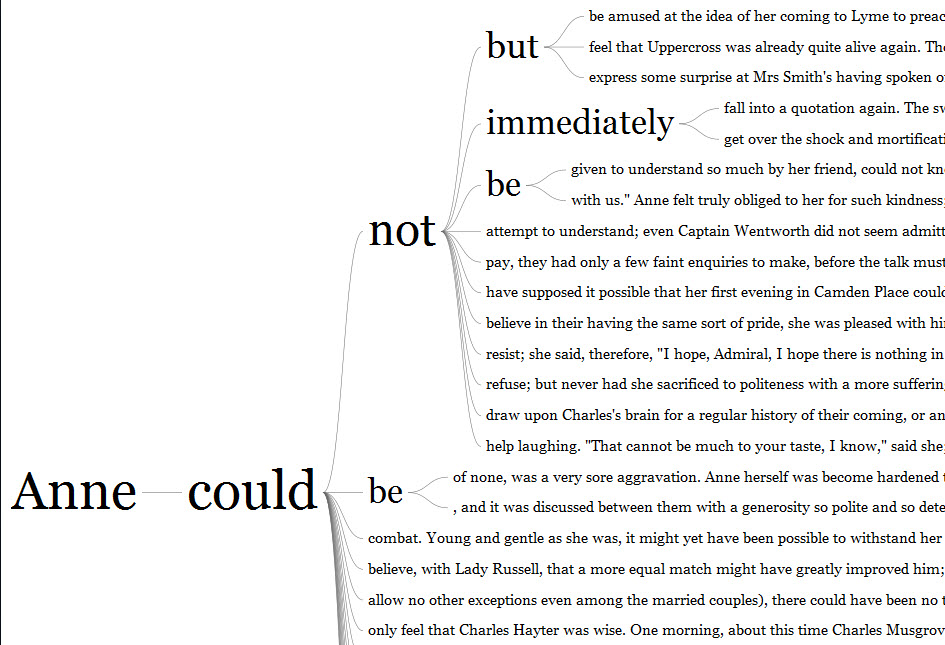Upper-Division Seminar:
Hacking Literary Interpretation
- Course Number: ENGL 197
- Prerequisites:
Check on GOLD.
- Advisory Enrollment Information:
This course cannot be repeated and is limited to upper-division English majors only.
- Catalog Course Entry: ENGL 197
- Quarter: Spring 2015

Course site – Schedule – Assignments – Student Work
Hacking Literary Interpretation
Using Digital Methods to Read Literature
(A Collaborative Project Seminar)
The new field of “digital humanities” is applying the methods of the digital age–computers, the Internet, social media, text analysis, visualization, GIS mapping, etc.–to the study of literature. The UCSB English Department is one of the nation’s leaders in digital humanities. This seminar complements training in literary analysis with an introduction to digital-humanities methods that extend the range of literary interpretation. A broader goal is to train students in the digital methods they are likely to encounter in many different professional fields today. The course counts for the English Department’s Literature and Culture of Information specialization (LCI) for English majors.
This course works on two parallel tracks:
On one track, students are introduced to methods and tools of the digital humanities–text encoding, data-mining and text analysis (including the cutting-edge approach known as “topic modeling”), social network analysis, mapping, and visualization. These provide extra leverage when reading individual texts or small collections of texts, and really come into their own when reading materials that literary interpretation previously had no way to handle–e.g., “big data” collections of texts or hybrid collections of texts (e.g., novels and newspapers of the nineteenth century). Each class in the early weeks of the course will introduce students to concepts, methods, and tools in the digital humanities, and require “practicums” in which students experiment with the tools in exploratory ways.
On a second track, the course is an experiment in collaborative project-making. With the help and supervision of the instructor, we’re going to use the new digital methods to make a class project demonstrating the digital reading of literature. Parts of several classes in the first weeks of the course will be devoted to class discussion about what we would like to do. A tentative working plan is as follows, with more detailed working plans and tasks to follow:
- The class will collect or create a digital “corpus” (a collection of texts in digitized form) for a particular kind or period of literary works.
- Several teams will then be formed in the class, each charged with using particular tasks and digital methods to study the corpus.
- The teams will then integrate the results of their approaches in a single online web page presenting the class project and its interpretive conclusions.
- In addition, students will have individual (and individually graded) assignments that complement the class project. These include two short “thought” essays and a course “portfolio.”
- There is no mid-term or final exam in the course.
In short, we’re going to study the new digital methods of reading literature and make a project together demonstrating the potential (and, of course, limitations) of those methods. (A broader purpose is to train students in the kind of collaborative team work that many professional fields today require.)
Note: No advanced skills or experience in digital methods is required, though students should have a basic familiarity with using computers and the Internet for their academic work. The instructor will introduce the necessary digital methods.